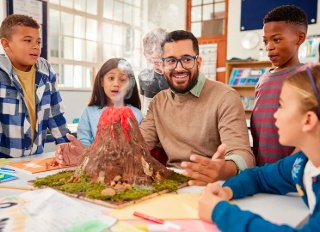Introducing young children to Science, Technology, Engineering, and Math (STEM) from an early age can set the stage for a lifetime of learning and curiosity. Early STEM learning isn’t just about preparing children for future careers—it’s about nurturing creativity, critical thinking, and problem-solving in ways that are fun and developmentally appropriate.
Building Curiosity Through Exploration
Children are natural explorers. Early STEM activities tap into this innate curiosity by encouraging hands-on learning. Whether it’s building a simple structure with blocks, watching plants grow, or experimenting with water and sand, these experiences help children observe, ask questions, and discover how things work.
Supporting Cognitive Development
STEM activities support the development of essential cognitive skills. Through sorting, counting, measuring, and experimenting, children begin to understand patterns, cause and effect, and basic logic. These foundational skills can benefit learning across all subjects.
Encouraging Teamwork and Communication
Many STEM projects are designed for collaboration. Working with others helps children practice communication, take turns, and learn how to share ideas. These social skills are important not only in school but also in life.
Fostering a Love of Learning
When children are given the freedom to explore STEM topics in creative and age-appropriate ways, they develop a positive attitude toward learning. This sense of confidence and excitement can motivate them to continue asking questions and solving problems as they grow.
Bringing STEM to Daily Life
Parents and educators don’t need complex tools to introduce STEM concepts. Simple activities like cooking together, sorting laundry by color and size, or exploring nature during a walk all offer great opportunities to talk about numbers, shapes, materials, and more.
Conclusion
Early STEM learning is about more than academic preparation—it’s about inspiring children to think independently, ask questions, and develop skills they’ll use throughout their lives. By making STEM part of everyday play and discovery, we give young learners a strong foundation for the future.














